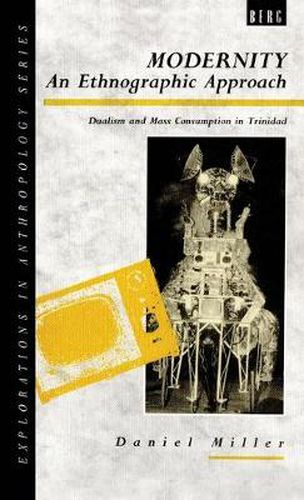Readings Newsletter
Become a Readings Member to make your shopping experience even easier.
Sign in or sign up for free!
You’re not far away from qualifying for FREE standard shipping within Australia
You’ve qualified for FREE standard shipping within Australia
The cart is loading…






From cultural studies, sociology, media studies, gender studies and elsewhere there have been a spate of books recently which have attempted to characterize the state of modernity. Many of these have also argued that what is required is an ethnographic work to determine how far these supposed trends actually apply to a given population. This book explicitly accepts this challenge and, in so doing, demonstrates the potential of modern anthropology studies. It starts by summarizing some debates on modernity and then argues that the Caribbean island of Trinidad is particularly apt for such a study given the origins of its population in slavery and indentured labour, both forms of extreme social rupture. The particular focus of this book is on mass consumption and the way goods and imported images such as soap opera have been used to express and develop a number of key contradictions of modernity. It will be of interest to anthropologists looking for a new potential for the discipline, as well as students in other fields who will be interested in the new contribution of anthropology to their debates.
$9.00 standard shipping within Australia
FREE standard shipping within Australia for orders over $100.00
Express & International shipping calculated at checkout
Stock availability can be subject to change without notice. We recommend calling the shop or contacting our online team to check availability of low stock items. Please see our Shopping Online page for more details.
From cultural studies, sociology, media studies, gender studies and elsewhere there have been a spate of books recently which have attempted to characterize the state of modernity. Many of these have also argued that what is required is an ethnographic work to determine how far these supposed trends actually apply to a given population. This book explicitly accepts this challenge and, in so doing, demonstrates the potential of modern anthropology studies. It starts by summarizing some debates on modernity and then argues that the Caribbean island of Trinidad is particularly apt for such a study given the origins of its population in slavery and indentured labour, both forms of extreme social rupture. The particular focus of this book is on mass consumption and the way goods and imported images such as soap opera have been used to express and develop a number of key contradictions of modernity. It will be of interest to anthropologists looking for a new potential for the discipline, as well as students in other fields who will be interested in the new contribution of anthropology to their debates.